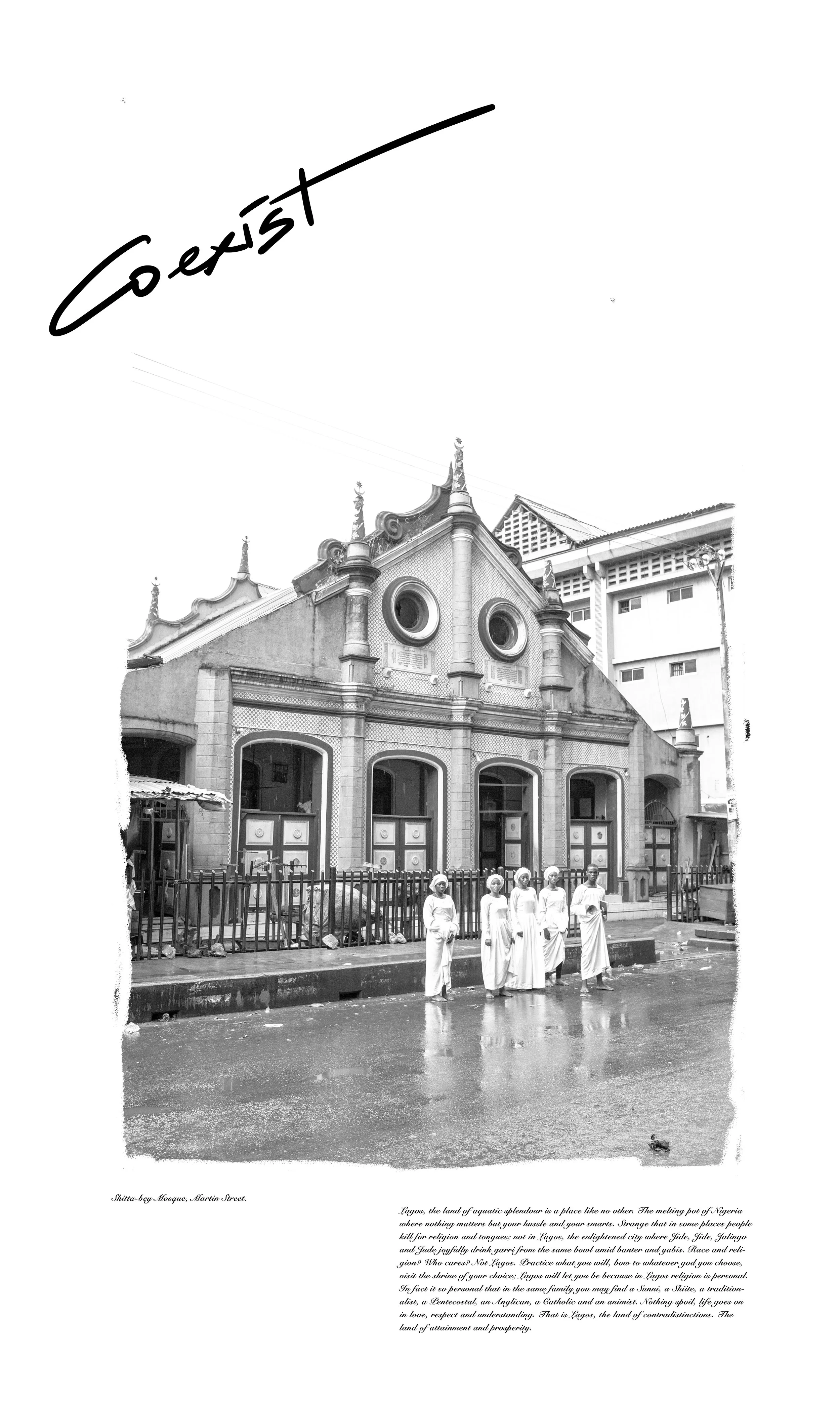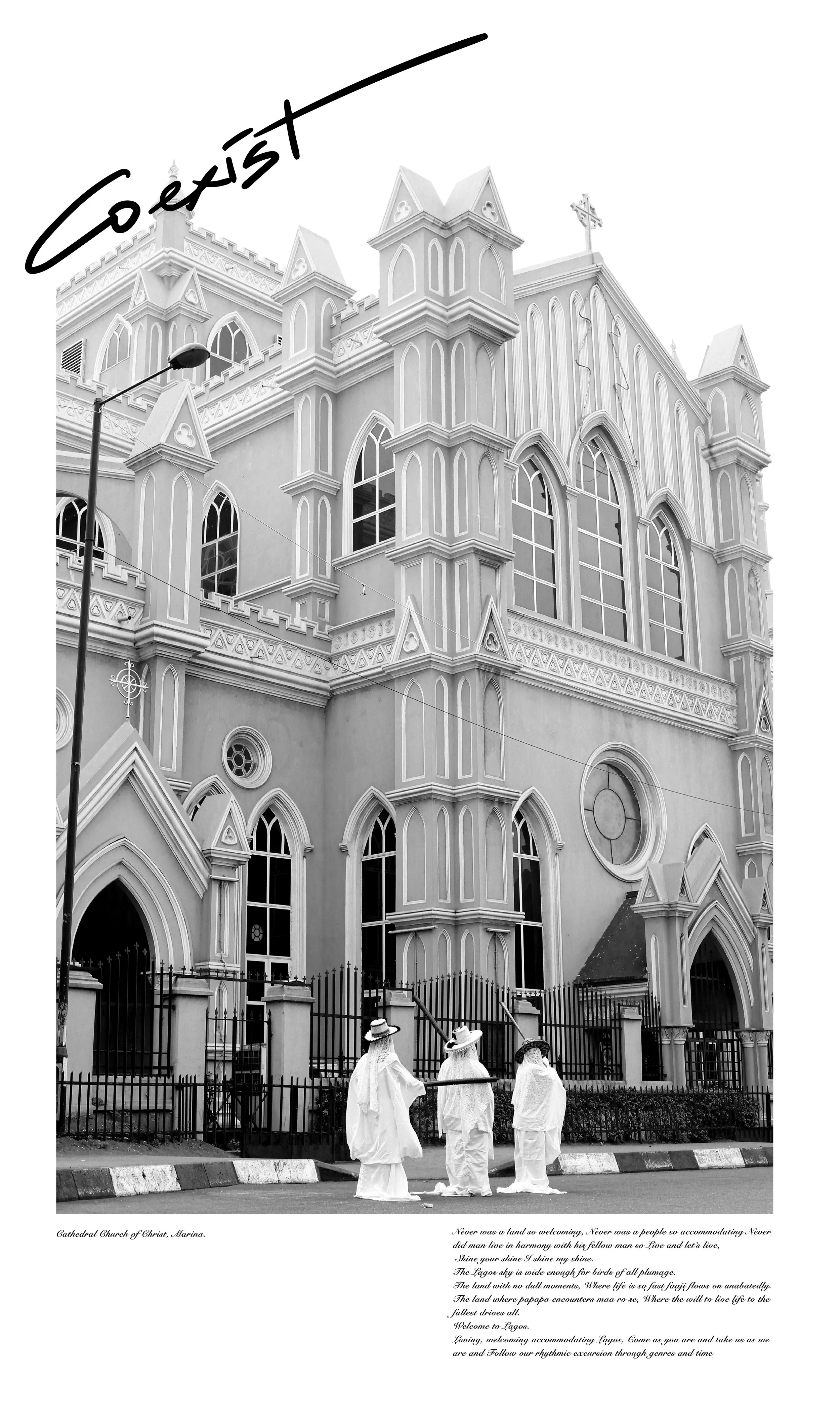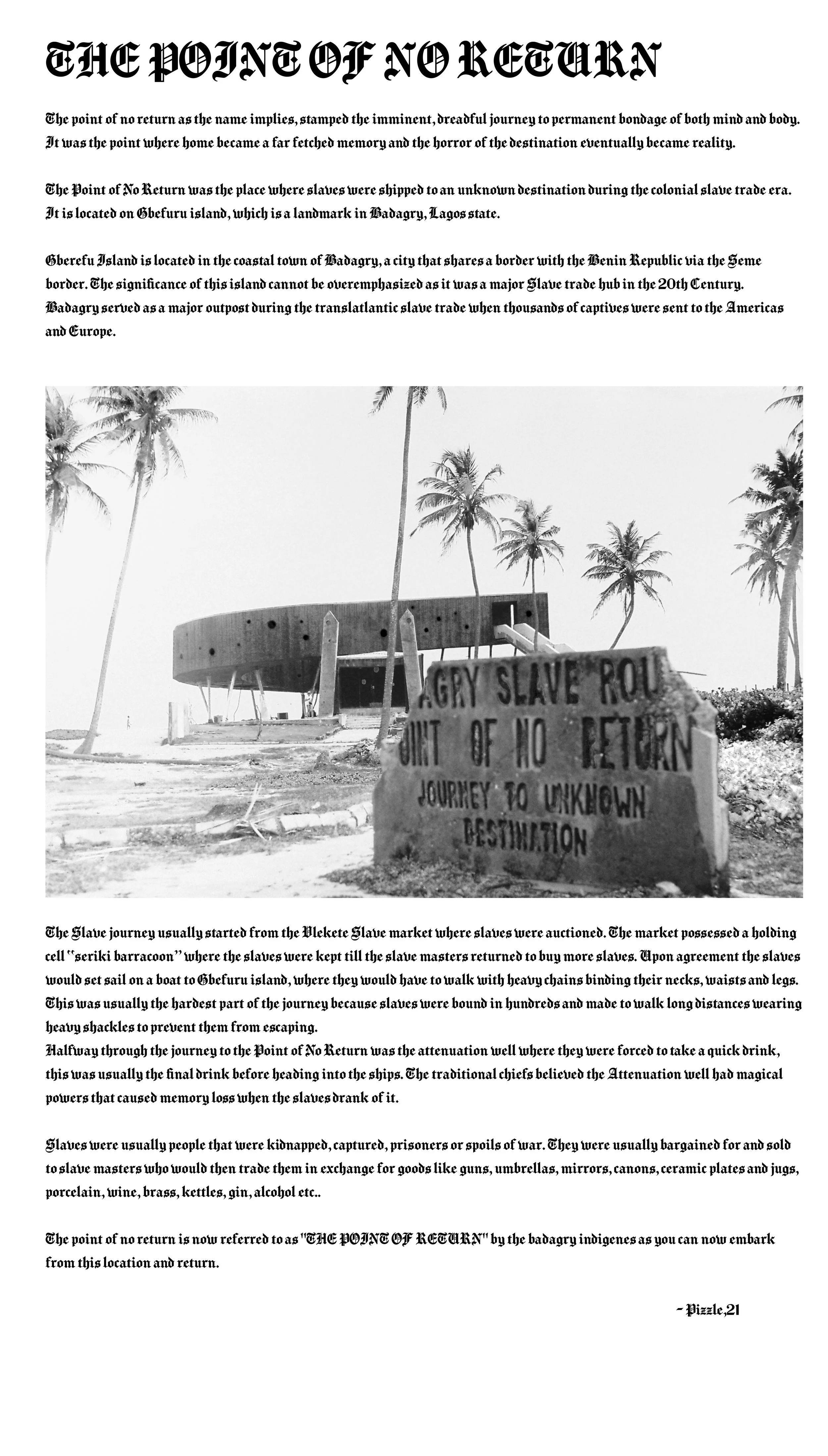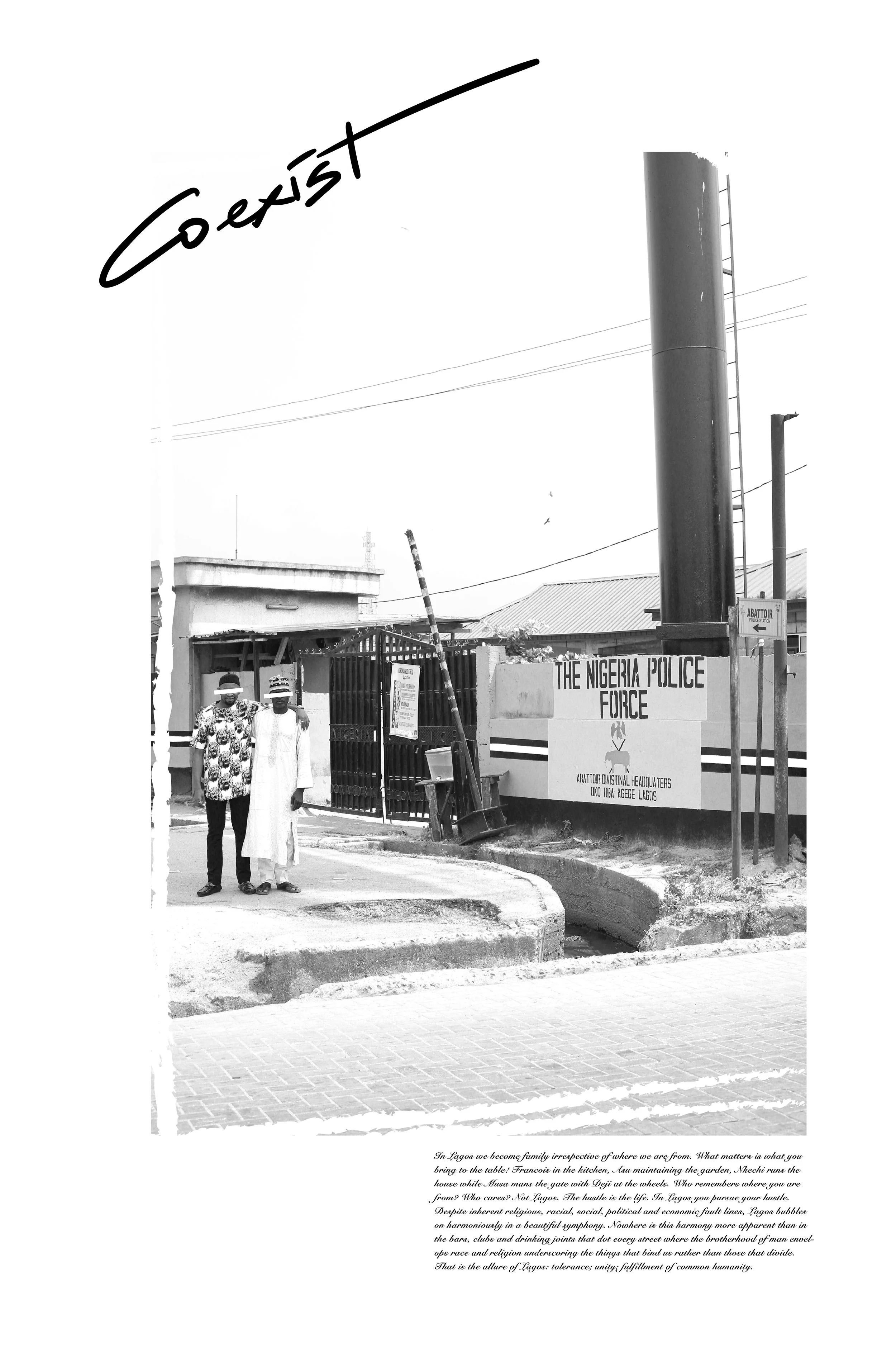Exclusively at Temple Muse: "Co-Exist"
Lagos — perhaps because of its incomparable boisterous energy and unrivalled diversity — has captured the restlessness of its artists and contributed heavily to the restless street photography art form, exposing many of the 21st century’s greatest photographers.
In a series of limited edition hand-etched prints titled “Co-exist”, Love Lagos highlights the intersectionality of Lagos, a vibrant melting pot where people from different backgrounds, religions, and tribes can come together to cohabit.
Lagos is a unique ecosystem that needs all its unique individuals and characteristics to keep functioning.
Each print uniquely captures a part of the essence of the city eliciting a deep feeling of nostalgia, unconditional love, recognizing, while celebrating differences.
Shitta-Bey Mosque
Lagos, the land of aquatic splendour is a place like no other. The melting pot of Nigeria where nothing matters but your “hussle” and your smarts. Strange that in some places people kill for religion and tongues; not in Lagos, the enlightened city where Jide, Jide, Jalingo, and Jude joyfully drink Garri from the same bowl amid banter and yabis. Race and religion? Who cares? Not Lagos. Practice what you will, bow to whatever god you choose, visit the shrine of your choice; Lagos will let you be because in Lagos, religion is personal. In fact, it is so personal that in the same family, you may find a Sunni, a Shiite, a Traditionalist, a Pentecostal, an Anglican, a Catholic, and an animist. Nothing spoil, life goes on in love, respect, and understanding. This is Lagos, the land of “contradistinctions”. The land of attainment and prosperity.
Eyo and Church
Never was a land so welcoming, Never was a land so accommodating, Never did a man live in harmony with his fellow man so live and let's live,
Shine your shine, I shine my shine.
The Lagos sky is wide enough for birds of all plumage.
The land with no dull moments, Where life is so fast faaji flows unabatedly.
The land where papapa encounters maa ro se, where the will to live life to the fullest drives all.
Welcome to Lagos.
Loving, welcoming. accommodating Lagos, Come as you are and take us as we are and Follow our rhythmic excursion through genres and time
THE POINT OF NO RETURN
The point of no return as the name implies, stamped the imminent, dreadful journey to permanent bondage of both mind and body. It was the point where home became a far-fetched memory and the horror of the destination eventually became reality.
The Point of No Return was the place where slaves were shipped to an unknown destination during the colonial slave trade era. It is located on Gbefuru island, which is a landmark in Badagry, Lagos state.
Gberefu Island is located in the coastal town of Badagry, a city that shares a border with the Benin Republic via the Seme border. The significance of this island cannot be overemphasized as it was a major Slave trade hub in the 20th Century.
Badagry served as a major outpost during the trans-Atlantic slave trade when thousands of captives were sent to the Americas and Europe.
The Slave journey usually started from the Vlekete Slave market where slaves were auctioned. The market possessed a holding cell “seriki barracoon” where the slaves were kept till the slave masters returned to buy more slaves. Upon agreement, the slaves would set sail on a boat to Gbefuru island, where they would have to walk with heavy chains binding their necks, waists, and legs. This was usually the hardest part of the journey because slaves were bound in hundreds and made to walk long distances wearing heavy shackles to prevent them from escaping.
Halfway through the journey to the Point of No Return was the attenuation well where they were forced to take a quick drink, this was usually the final drink before heading into the ships. The traditional chiefs believed the Attenuation well had magical powers that caused memory loss when the slaves drank of it.
Slaves were usually people that were kidnapped, captured, prisoners, or spoils of war. They were usually bargained for and sold to slave masters who would then trade them in exchange for goods like guns, umbrellas, mirrors, canons, ceramic plates and jugs, porcelain, wine, brass, kettles, gin, alcohol, etc.
IGBO AND HAUSA
In Lagos, we become family irrespective of where we are from. What matters is what you bring to the table! Francois in the kitchen, Asu maintaining the garden, Nkechi runs the house while Musa mans the gate with Deji at the wheels. Who remembers where you are from? Who cares? Not Lagos. The hustle is the life. In Lagos, you pursue your hustle.
Despite inherent religious, racial, social, political, and economic fault lines, Lagos bubbles on harmoniously in a beautiful symphony. Nowhere is this harmony more apparent than in the bars, clubs, and drinking joints that dot every street where the brotherhood of man envelops race and religion, underscoring the things that bind us rather than those that divide. That is the allure of Lagos: tolerance; unity; fulfillment of common humanity.
Get your limited edition “Co-Exist” print, exclusively at Temple Muse.




